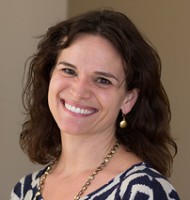Republished with permission from State of Reform
The Oregon Health Authority has awarded $27 million in “transformation funds” to the 16 coordinated care organizations (CCOs) that serve the state’s Medicaid population.
The grant awards were finalized in mid-January, according to Cathy Kaufmann, director of the OHA’s Transformation Center, which administers the grants.
The transformation funds were allocated by the Oregon Legislature in 2013 and are intended to help CCOs launch innovative projects aimed at improving integration and coordination of care for Medicaid patients.
Specifically, the Legislature directed the funds to be used for projects that would create services targeting specific populations or disease conditions, enhance the CCO’s primary care home capacity, and invest in information technology and electronic medical records.

Cathy Kaufmann, director, Transformation Center, Oregon Health Authority
Over time, the coordinated care model is projected to save money and improve health outcomes, Kaufmann told State of Reform, in part by using innovative programs and practices. “The funds are a way to [kick-start] the innovation,” Kaufmann said.
Each CCO was automatically given $1.25 million. Some grants are larger, depending on a CCO’s population size, but none of the grants exceeded $4 million.
Each award will fund multiple projects, including some that reflect a growing emphasis among CCOs on creating a localized healthcare system tailored to the specific needs of their patient population.
“Each CCO is really using the dollars in a way that really fits the needs of their communities,” Kaufmann said. “What’s great about the transformation funds is that we’re creating some space for the CCOs to be creative and innovative, and try things they may not be able to try otherwise.”
For example, Cascade Health Alliance, which provides care in Klamath County, will use some of its funds to create the county’s first youth crisis respite program for young people experiencing mental health crises. FamilyCare is hiring a nutritionist, and other CCOs are adding more traditional health workers, detox beds, funding initiatives related to maternal care, pediatric care, chronic pain, and finding ways to embed various health providers in clinics.
PrimaryHealth of Josephine County will use some of its grant to add several positions at the Grants Pass Clinic, which serves about 56 percent of its patients, said Jennifer Johnstun, the CCO’s director of quality improvement. The plan is to add a psychologist, a full-time alcohol and drug counselor, a community outreach worker, three medical home coordinators and a part-time nurse.
“It’s a totally different set of resources for a clinic that it’s not had in the past,” Johnstun said. The added staff “will really help us improve population health.”
Some projects could potentially serve all low-income people in a community, not just Medicaid patients.
Health Share of Oregon, which serves the Portland metropolitan region, is using some of its funds to enable Washington and Clackamas counties to create a program that conducts home visits and improves care for low-income families with asthmatic children.
The program is modeled on Multnomah County’s Healthy Homes Asthma program, which “has had a huge return on investment,” said Health Share of Oregon CEO Janet Meyer. But Clackamas and Washington counties didn’t have enough funds to replicate it.
Learning is a major theme. Prior to sending in their grant applications, there was a lot of communication among the CCOs about the projects they planned to pursue. CCOs are also expected to share information and results.
“I think all of the CCOs were very intentional, very thoughtful about what we wanted to invest in,” Meyer said. The goal was to “move the whole conversation forward.”